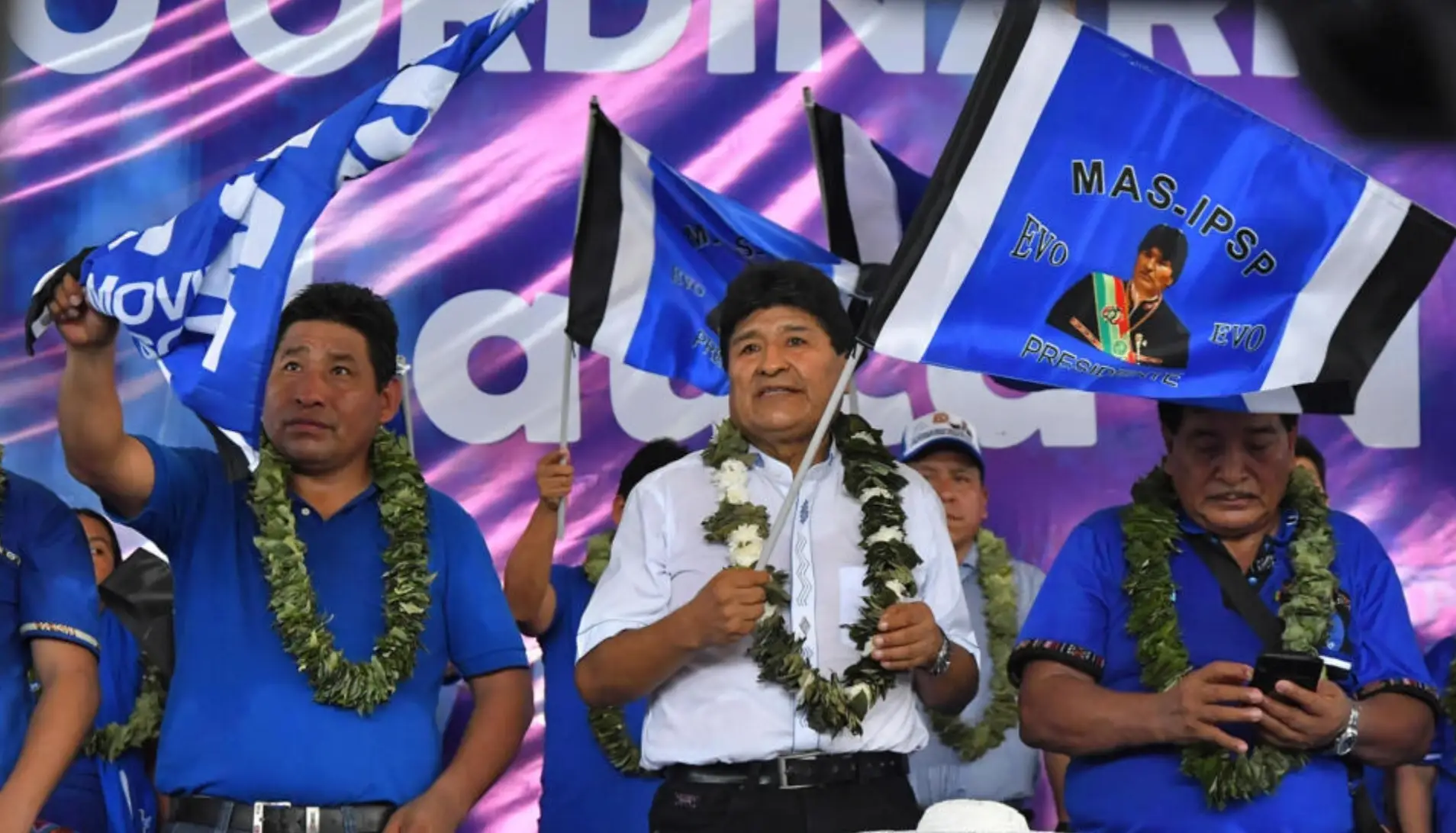The MAS (Movement Toward Socialism) accelerated the pre-electoral competition in Bolivia from Lauca Ñ (belonging to the municipality of Shinahota, in Cochabamba) through its party congress. On the occasion of the congress, Evo Morales was ratified as national leader and declared the only candidate for the presidential elections, and Luis Arce was expelled. This political-partisan event has been considered illegal and inorganic by the supporters of the Bolivian president, but for the followers of the indigenous leader, his loyalty and conviction give him the necessary legitimacy based on a statute that gives him legality. In addition, he has set the agenda for the other presidential aspirants.
Let’s see in what context this congress is taking place. Economically, Bolivia is going through a complicated situation, something that reflects the increase in the price of the dollar in the unofficial market. This has led to uncertainty and negative emotions that are difficult to reverse in the short and medium term. Although the Minister of Economy has insisted that buying and selling has normalized (fixed exchange rate of 6.96 Bolivian Boliviano per dollar), for many traders (informal jobs) the situation remains irregular.
In terms of the social context, the informality rate in Bolivia is higher than in Nicaragua, Paraguay, and El Salvador. According to official data from June of this year from the Jubilee Foundation, 76 out of every 100 employed persons over 14 years of age are not enrolled in any type of social security system that provides them with benefits such as retirement and medical care.
Regarding the political situation, the opposition to the national government is ideologically diverse but has an anti-MAS perspective as a common factor. However, electorally it has been, and continues to be, atomized. Their limited capacity to build a broad front with a social project that capitalizes on this common factor has reduced them to a minority in Parliament for more than a decade and without the possibility of stopping the authoritarian drifts of the executive power. For now, it seems that the selfish political-electoral behavior, without ideological conviction or identity passion of the partisan opponents, will remain in force in the pre-electoral process toward 2025.
The authoritarian drift of the president with the partisan and regional opposition is an aspect that should not be left aside. The preventive (arbitrary) detentions of Luis Fernando Camacho (governor of Santa Cruz) and Jeanine Áñez, among other political prisoners, are representative of the institutional weakness and democratic regression in the country.
The main cleavage between Arce and Evo is the increasing inequality of state resources between the factions they represent. The central state has more than half a million public employees commanded by the executive branch. This data illustrates the material, power, and status incentives that President Arce has generated in individual and collective agents since November 2020, heir to the material incentives granted during the Morales administration.
The collective agents that support Arce are grouped in the so-called Unity Pact. Basically, they are structured around three parent organizations of indigenous and peasant origin, considered by the president as “the owners” of the political instrument: (United Confederation of Peasant Workers of Bolivia (CSUTCB), National Confederation of Indigenous Peasant Women from Bolivia “Bartolina Sisa”, and Trade Union Confederation of Native Intercultural Communities of Bolivia (SCSIOB). The fourth collective agent (not an organic part of the Unity Pact) is the Bolivian Workers’ Central (COB), of popular origin.
On October 17, a town meeting will be held with all these collective agents and the bureaucratic mass in the city of El Alto with the aim of “defining the redirection, reorganization, and restructuring of the political instrument and the process of change”. A concentration that intends to show the articulated social forces that support Arce, structurally distant from Morales, but ideologically close to MAS.
On the other hand, the pro-Evo faction is fundamentally composed of the coca growers sector (Chapare) and (similar) leaders of the Unity Pact. They are the emotionally extremist and ideologically radical base of the MAS. Several social and professional representatives loyal to Evo have been excluded from the Arce administration. In the Plurinational Assembly, the treatment of several laws has been paralyzed due to the intense dispute between Arce’s and Evo’s parliamentarians, which prevents the president from having an absolute majority.
Nonetheless, the congress in Lauca Ñ accelerated the divorce between Arce and Evo, intensified the rift at the level of public administration, generated greater distancing in the Parliament between the various factions, and divided the waters between popular, peasant and indigenous sectors: organic (Arcistas) against militants (Evistas).
In this cleavage, Arce has a coercive advantage over Evo, since the judiciary plays a strategic role that is favorable to him. The constitutional injunction, presented by Felipa Montenegro, representative of the Bartolinas (collective agent supporting the president), is a legal action that seeks to have the call for the party congress declared illegal. A legal situation that is likely to be resolved on October 23.
After the congress, the debate between the evistas and arcistas factions has as its axis the legality/illegality and legitimacy/illegitimacy of the party event. For the moment, the MAS is in the hands of Evo, but the collective agents that support Arce maintain the battle in the legal field to recover the instrument they consider themselves owners of.
Arce and Evo represent continuity, not change. Both have exercised cooptation as a mechanism of domination over the collective agents constituting the Unity Pact: the social force on which the discursive strategy of both leaders is based when they appeal to the people to decide on their behalf.
The Unity Pact and the COB can be defined as associations of interest because they only seek to give continuity to the state benefits received by their members. They are material incentives of power and status that do not generate a disruptive change for the public good; they are subjects of the cooptation mechanism.
For now, Evo returns to the electoral arena and Arce is expelled from the MAS – for Morales, the first president expelled himself because he desisted from participating in its national congress -, but there is no doubt that he will run for the presidency for the second time. Both represent the continuity of a political project in process of cracking. The two factions need to maintain the cooptation of interest associations, the coercion of their opponents, and the consent of their voters.
Despite the gravitational pre-electoral dispute within the most important political party in Bolivia in the 21st Century, according to the socioeconomic context, the process of change is a sophism.
*Translated by Janaína Ruviaro da Silva from the original in Spanish.













